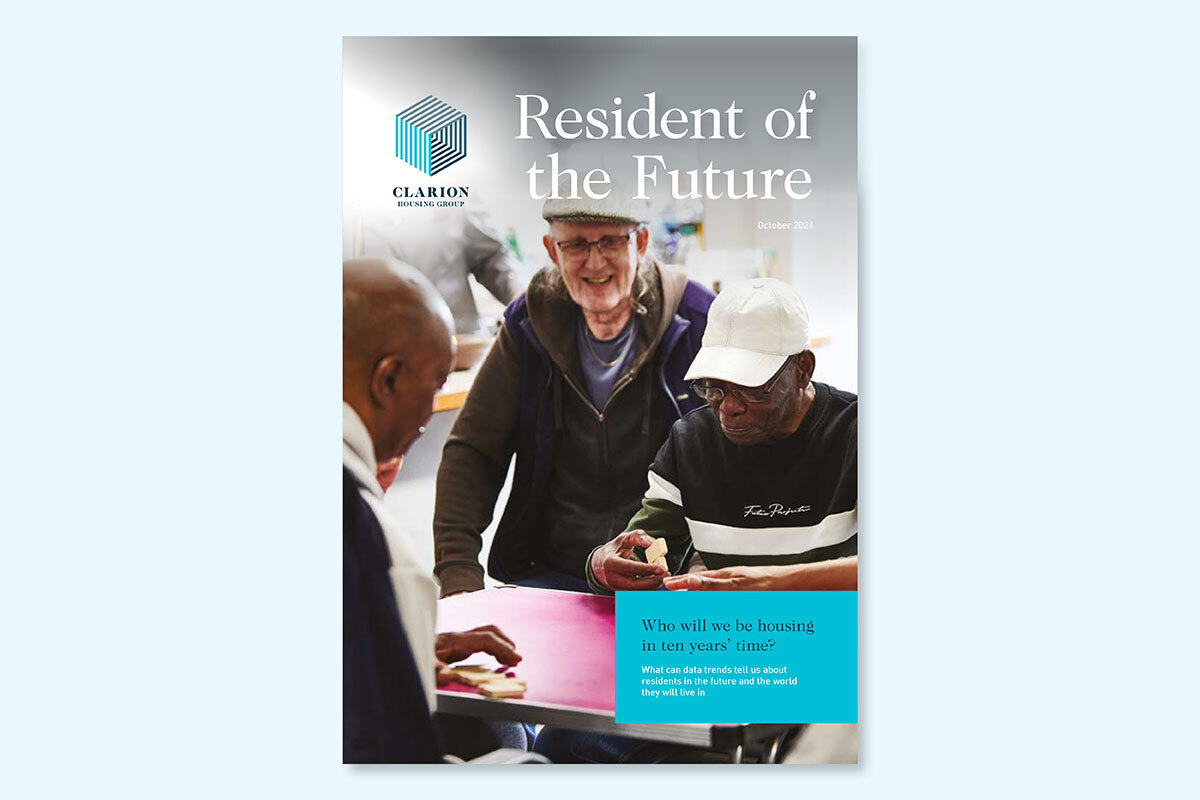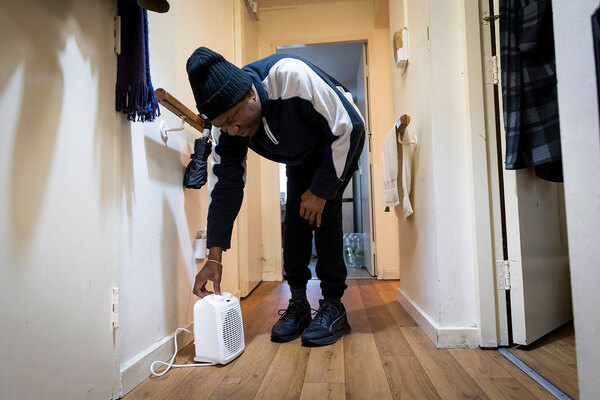Residents expected to get older, lonelier, poorer and less healthy, Clarion report says
New research by the UK’s largest housing association has found that its future residents will be older, lonelier, in worse health and financially poorer.

The findings by Clarion have been published in its first Resident of the Future report, using demographic shifts among its residents over time to project who they might be in the near future, as well as the growing challenges they are likely to face.
The report considers external social, economic and housing market trends, drawing on research from several sources including the UK Housing Review, the Office for National Statistics and the English Housing Survey.
The research has been carried out following a recommendation from the Housing Ombudsman for social landlords to identify any gaps in services for residents into the future.
Key findings by researchers included the number of Clarion residents reporting a disability rising from 26% in 2020 to 42% in 2023. At the same time, 7.1% of people in the UK report they are chronically lonely, up from 6% in 2020.
However, within Clarion residents these figures are significantly higher, with chronic loneliness increasing from 10% to 16% from 2019 to 2023.
In addition, food bank use among Clarion residents has doubled to 14% in 2023 since 2018, and the number of residents who report going without food has increased from 13% to 20% over the same period.
Several national trends were also identified, including an ageing population, unpredictable immigration, increasing ethnic diversity, more households, and increasing affordability challenges in the housing market.
From these findings Clarion said it will adjust and fine-tune its services in the years to come to meet the changing needs and expectations of its residents.
Clare Miller, chief executive of Clarion, said: “While we cannot predict the future, we have a responsibility to our residents to look ahead and to plan with the knowledge we do have. The projections in this report are the first step in our forecasting which will help us shape our services to meet the evolving needs of our residents and the challenges they face.
“We already offer a number of support services and have shown these to have real impact on our residents’ lives. But if we are to meet the challenges ahead, it must be in tandem with a government prepared to be bold and provide serious investment into both social housing and our public services.
“Every indication so far suggests this government has the will, and I look forward to next year’s Spending Review. Meanwhile, we will continue to do everything we can to support our residents into the future and ensure we are doing our best by those who need us.”
The landlord explained that it is already looking to tackle many of these issues through its charitable foundation, Clarion Futures, which provides a variety of services to residents beyond that of a landlord, including help with money and finances, jobs and training, digital skills, and mental health.
Clarion’s latest research comes after the G15 group of London landlords, of which the association is a member, warned last year that schemes providing “vital” support to residents and plugging gaps in state services are at risk without urgent government action.
The group said that housing associations’ voluntary support services, worth £23m in social value last year, are under increasing pressure as budgets come under strain.
Clarion said it plans to build on its latest report, with the next phase including workshops with directors, testing scenarios in different business areas and drawing up an action plan to implement learnings that will also be fed into a new customer strategy in 2025.
This report also comes after a December survey by Clarion that found cost of living pressures on social housing tenants show some signs of easing, but nearly six in 10 still only have enough for essentials.
Sign up for our care and support newsletter
Already have an account? Click here to manage your newsletters











